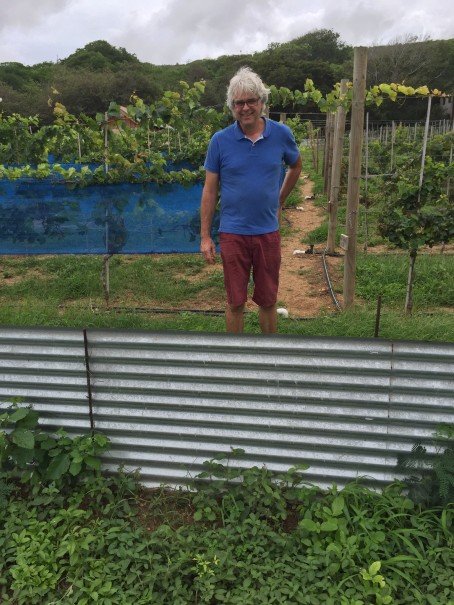
Can You Call It Paradise Without Wine?

Can You Call It Paradise Without Wine?
Wine in Curacao
When most people think of a winery, they think of endless farmland, twisted vines, and clustered fruit. Not Boeing-777s. Not reminders of the slave trade. And certainly not the Caribbean.
But on Curacao’s largest former plantation, with the Hato International Airport’s runways less than a mile away, sits the Curacao Winery. Three-foot, slave-built walls delineate its old corrals. It’s the first winery on the island and one of the first in the Caribbean. One winery in the Dominican Republic has just popped its corks, and another is set to open on St. John.
The Curacao Winery completed its first harvest this past November and prepares to release its inaugural bottles this April. What was once thought impossible—growing quality wine grapes in the Caribbean—is being attempted. Rare microclimates scattered across the vast archipelago, with just the right combination of heat, breeze, and sunshine, are now thought to have the right recipe for yielding drinkable tempernillos, cabernet sauvignon, and a few other varietals.
Dutch winemaker Roelof Visscher, along with a pair of German advisors who specialize in growing wine in the tropics, had searched the island for that environment. When they found the loamy soil at Curacao’s largest former plantation, where naturally-sourced water with a high mineral content and low salinity ran from the mountains, Visscher bought the land.
It took Visscher’s team a year and a half to cut back the desiccated brush and the stubborn cacti, leaving the vintner with another great task: preserving the relics of history discovered on his property. Besides the walls, there is an 18th century family cemetery on site. Scattered about the property are three slave-dug water wells, which are graves, too, as many lives were lost during excavation. And down a path littered with almonds, past junked cars and rusted engines, is a crumbling 17th century slave prison tinged with oxidation, neglect, and tragedy. Visscher is deciding whether he will open the building on these historical and hallowed grounds to tipplers or preserve the site for posterity. Regardless, it’s left him with more to consider than just growing grapes in this unpredictable climate.
As a winemaker from the Netherlands, there were a number of variables that he had never before considered, like iguanas getting to his crop. (This explains the two-foot corrugated steel walls surrounding his vines.) The amount of personalized attention his vines would need, had also never crossed his mind. Because of all the sunlight, Visscher has to constantly walk the property, pinching off leaves for his grapes to grow.
There are great benefits, however, to growing grapes in the Caribbean, like the three growing periods in one calendar year, (though, in order to rest the soil and vines, the winery will only use two.) And because growing grapes in the Caribbean is still only a skilled winemaker’s best guess, Visscher has planted a dozen experimental vines, hoping to find a wild card that will thrive in the Caribbean.
Back at the patio, where bottles are served from Visscher’s winery in Holland, drinkers watch planes skid into paradise down the airport’s runways. Beyond that the island drops to the sea. The afternoon imbibers are mostly European. If farming grapes in Curacao was a challenge, perhaps getting the locals to like his wines would prove an even larger one.
“They are very proud of us,” Visscher said. “But they like sweet drinks. I don’t think locals will drink so much of our wine.”